
Matara: The Hidden Gem of Southern Sri Lanka
Located on the southern coast of Sri Lanka, Matara is a serene yet bustling city that offers a rich blend of culture, history, and natural beauty. Known for its pristine beaches and historical sites, Matara serves as an ideal getaway for those looking to experience the authentic Sri Lankan lifestyle. The city is a harmonious mix of colonial architecture, ancient temples, and modern amenities, making it a captivating destination for all types of travelers. Start your journey by visiting the Matara Fort, a historical fortress built by the Portuguese and later expanded by the Dutch. The fort offers stunning views of the Indian Ocean and provides a glimpse into Sri Lanka's colonial past. Another must-visit is the Weherahena Temple, famous for its giant Buddha statue and intricate underground tunnels adorned with vibrant murals narrating Buddhist stories. For beach lovers, Polhena Beach is a paradise with its calm, shallow waters perfect for snorkeling and swimming. Don't miss out on exploring the nearby Mirissa Beach, renowned for whale watching and its lively nightlife. Matara is also a gateway to other southern attractions like the Yala National Park, where you can embark on thrilling safaris and spot a variety of wildlife. Food enthusiasts will find Matara a delightful culinary destination, offering a range of local delicacies from fresh seafood to traditional Sri Lankan curries. The city’s markets are bustling with vendors selling everything from tropical fruits to handmade crafts, providing an immersive cultural experience. Whether you are an adventure seeker, a history buff, or simply looking to unwind, Matara has something special to offer.
Local tips in Matara
- Visit early in the morning to the Matara Fort to avoid the crowds and enjoy the peaceful ambiance.
- Polhena Beach is best visited during weekdays for a more tranquil experience.
- Try local dishes at small, family-run eateries for an authentic culinary experience.
- Carry cash, as many local shops and markets do not accept credit cards.
- If planning a whale-watching tour in Mirissa, book in advance during peak season to secure a spot.
Matara: The Hidden Gem of Southern Sri Lanka
Located on the southern coast of Sri Lanka, Matara is a serene yet bustling city that offers a rich blend of culture, history, and natural beauty. Known for its pristine beaches and historical sites, Matara serves as an ideal getaway for those looking to experience the authentic Sri Lankan lifestyle. The city is a harmonious mix of colonial architecture, ancient temples, and modern amenities, making it a captivating destination for all types of travelers. Start your journey by visiting the Matara Fort, a historical fortress built by the Portuguese and later expanded by the Dutch. The fort offers stunning views of the Indian Ocean and provides a glimpse into Sri Lanka's colonial past. Another must-visit is the Weherahena Temple, famous for its giant Buddha statue and intricate underground tunnels adorned with vibrant murals narrating Buddhist stories. For beach lovers, Polhena Beach is a paradise with its calm, shallow waters perfect for snorkeling and swimming. Don't miss out on exploring the nearby Mirissa Beach, renowned for whale watching and its lively nightlife. Matara is also a gateway to other southern attractions like the Yala National Park, where you can embark on thrilling safaris and spot a variety of wildlife. Food enthusiasts will find Matara a delightful culinary destination, offering a range of local delicacies from fresh seafood to traditional Sri Lankan curries. The city’s markets are bustling with vendors selling everything from tropical fruits to handmade crafts, providing an immersive cultural experience. Whether you are an adventure seeker, a history buff, or simply looking to unwind, Matara has something special to offer.
When is the best time to go to Matara?
Iconic landmarks you can’t miss
The Dutchman's Street
Discover the vibrant flavors of Sri Lanka at The Dutchman's Street, a must-visit restaurant and coffee shop in Matara's historic Fort area.
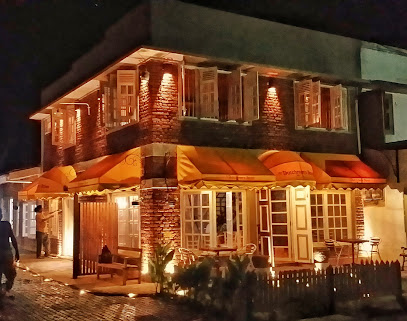
Matara Bodhiya - මාතර බෝධිය (மாதாரா போ மரம்)
Explore the serene Matara Bodhiya, a sacred Buddhist temple in Sri Lanka, known for its historic Bodhi tree and peaceful spiritual ambiance.
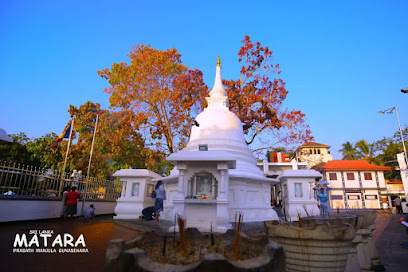
The Shrine of Our Lady of Matara
Explore the tranquil beauty of The Shrine of Our Lady of Matara, a spiritual haven rich in history and cultural significance in Sri Lanka.
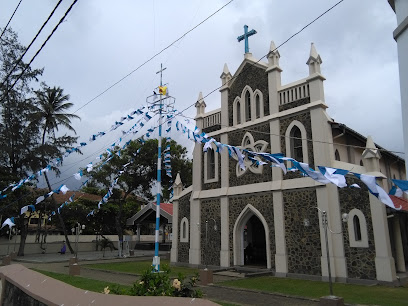
පරෙවි දූව විහාරස්ථානය - Parewi Duwa Temple
Explore the serene beauty and rich cultural heritage of Parewi Duwa Temple in Matara, a tranquil Buddhist retreat with stunning ocean views.
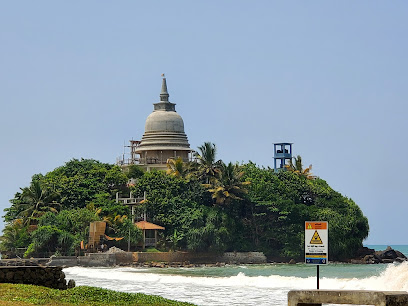
Sanaya Mansion
Discover the exquisite blend of comfort and elegance at Sanaya Mansion, Matara's premier hotel and wedding venue with delightful dining options.

Star Fort Matara
Explore Star Fort Matara, a stunning 18th-century fortress offering rich history and breathtaking coastal views in Sri Lanka.
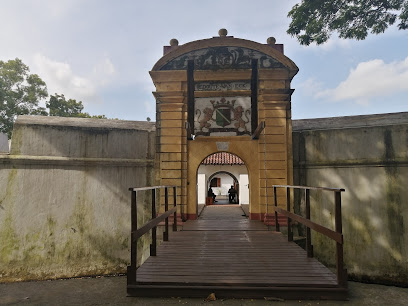
Kotuwe Kade Shopping Centre
Discover the vibrant Kotuwe Kade Shopping Centre in Matara, where local culture meets modern shopping and dining experiences.
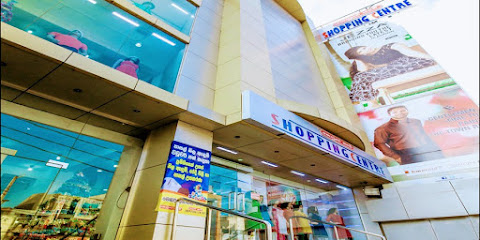
Matara Beach Park
Experience the natural beauty and vibrant culture of Matara Beach Park, a scenic coastal gem in Sri Lanka perfect for relaxation and exploration.
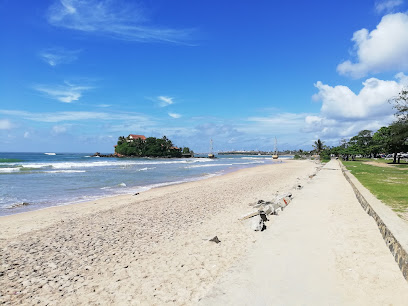
Madiha Beach
Explore the tranquil beauty of Madiha Beach in Matara, Sri Lanka, where golden sands meet vibrant waves and unforgettable sunsets await.
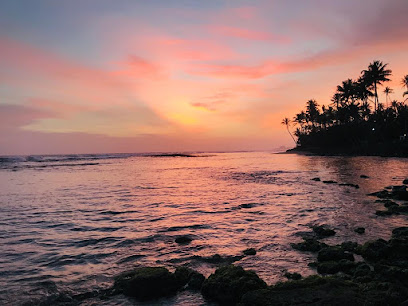
Matara Beach
Discover the pristine beauty of Matara Beach, a tranquil escape on Sri Lanka's southern coast, where adventure and relaxation await.
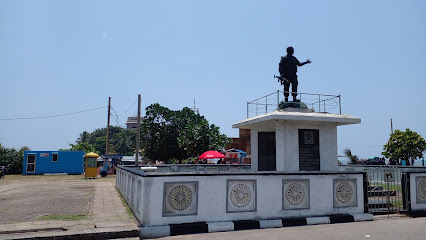
Matara Fort
Discover the enchanting Matara Fort - a stunning historical landmark in Sri Lanka that offers a glimpse into colonial history amidst breathtaking ocean views.
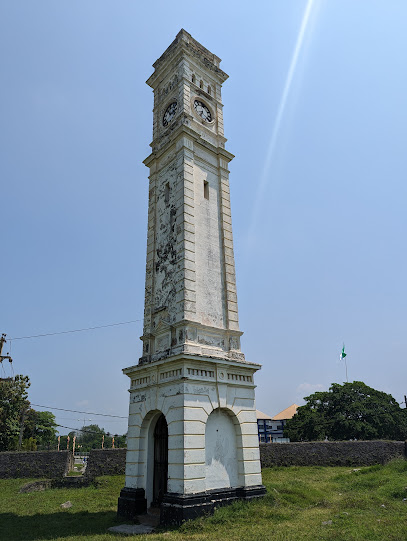
Hotel Nawathana
Discover the charm of Matara from Hotel Nawathana, your cozy retreat in the heart of Sri Lanka's vibrant coastal town.

Matara Paravi Duwa Beach
Experience the serene allure of Matara Paravi Duwa Beach, a hidden gem in Sri Lanka's stunning southern coastline.
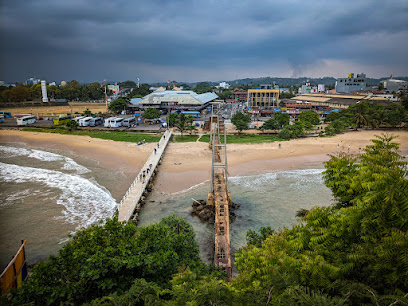
මාතර තානායම
Experience the warmth of Sri Lankan hospitality at a cozy guest house in the heart of Matara, surrounded by beautiful beaches and rich culture.
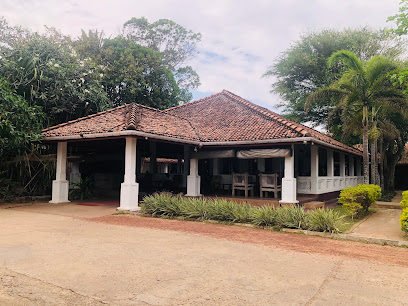
Nilwala Crocodile Safari Matara
Discover the exhilarating Nilwala Crocodile Safari in Matara, where adventure meets the wild beauty of Sri Lanka's pristine landscapes.
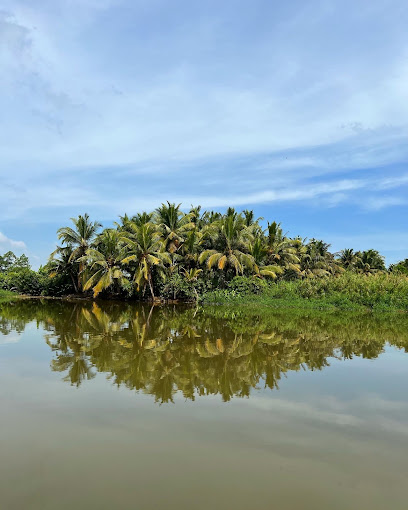
Unmissable attractions to see
Galle Dutch Fort
Discover the rich history and stunning architecture of Galle Dutch Fort, a UNESCO World Heritage site in Sri Lanka, where culture meets coastal beauty.
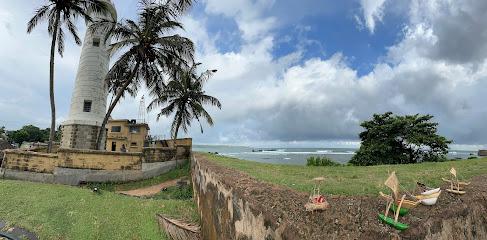
Hummanaya Blow Hole
Discover the breathtaking Hummanaya Blow Hole in Kudawella, where nature's power creates stunning water displays and unforgettable memories.
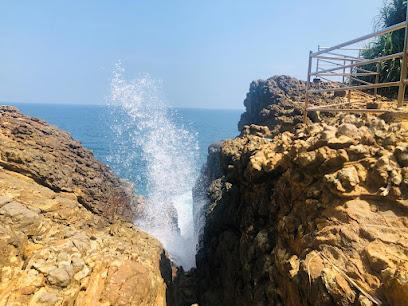
Japanese Peace Pagoda - Rumassala
Experience serenity and breathtaking views at the Japanese Peace Pagoda, a symbol of peace nestled on Rumassala mountain in Unawatuna, Sri Lanka.
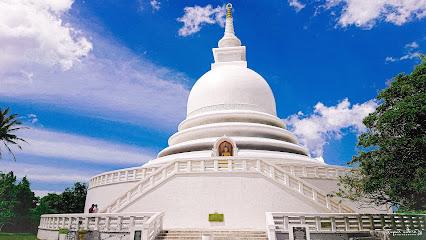
Jungle Beach
Experience the serene beauty of Jungle Beach in Sri Lanka, where lush landscapes meet pristine waters for the ultimate tropical getaway.
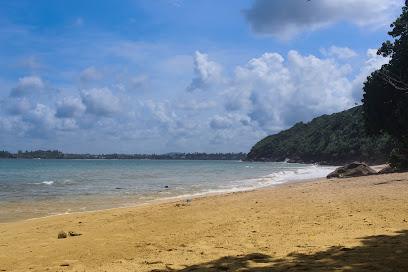
Galle International Cricket Stadium - ගාල්ල ජාත්යන්තර ක්රිකට් ක්රිඩාංගනය
Experience the thrill of cricket at Galle International Cricket Stadium, where scenic views meet Sri Lanka's rich sporting culture.
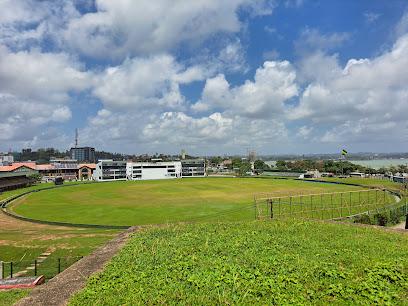
Unawatuna Beach
Discover the serene beauty and vibrant culture of Unawatuna Beach, a paradise for relaxation and adventure on Sri Lanka's southern coast.
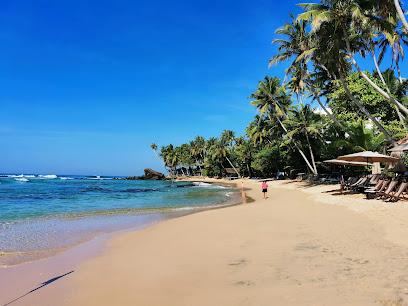
Mirissa Beach
Experience the serene beauty and vibrant marine life at Mirissa Beach, the perfect destination for relaxation and adventure on Sri Lanka's southern coast.
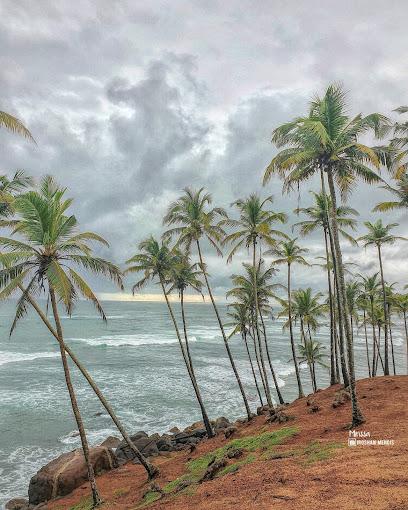
Sea Turtle Farm & Hatchery koggala
Discover the incredible world of sea turtles at Koggala's Sea Turtle Farm & Hatchery, a vital sanctuary for marine conservation and education.
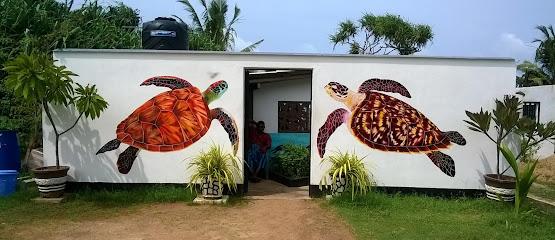
Weherahena Poorwarama Rajamaha Viharaya - Matara | වෙහෙරහේන පුර්වාරාම රජමහා විහාරය - මාතර
Discover tranquility and spiritual beauty at Weherahena Poorwarama Rajamaha Viharaya, a stunning Buddhist temple in Matara, Sri Lanka.
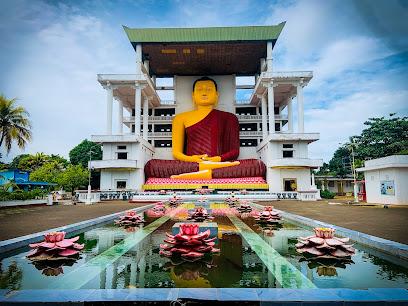
Wewurukannala Buduraja Maha Viharaya
Discover the serene beauty of Wewurukannala Buduraja Maha Viharaya, a stunning Buddhist temple in Dikwella, Sri Lanka, rich in culture and spirituality.
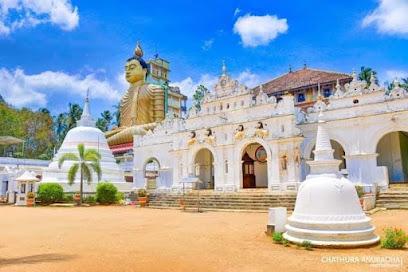
Polhena Beach
Experience the breathtaking beauty of Polhena Beach in Sri Lanka, where golden sands meet azure waters for the perfect beach getaway.
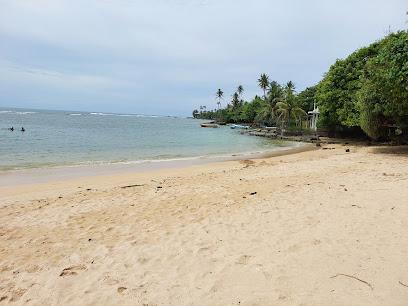
Parrot Rock
Explore the stunning Parrot Rock in Mirissa, a natural wonder offering breathtaking views and a serene escape on Sri Lanka's southern coast.
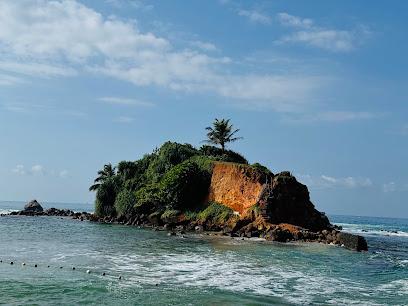
Secret Beach Mirissa
Discover the serene beauty of Secret Beach Mirissa, a tranquil oasis on Sri Lanka's southern coast, perfect for relaxation and exploration.
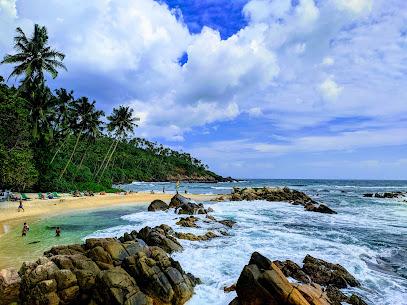
Martin Wickramasinghe Folk Museum
Discover the essence of Sri Lankan folklore and culture at Martin Wickramasinghe Folk Museum in Koggala, a captivating destination for history lovers.
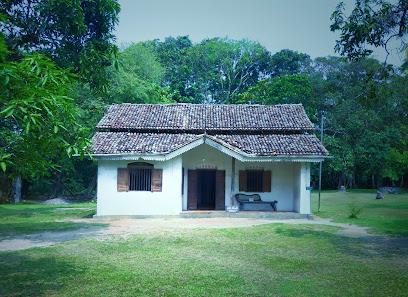
Mulgirigala Raja Maha Viharaya
Discover the serene beauty and rich history of Mulgirigala Raja Maha Viharaya, a stunning Buddhist temple complex in Sri Lanka's lush landscape.
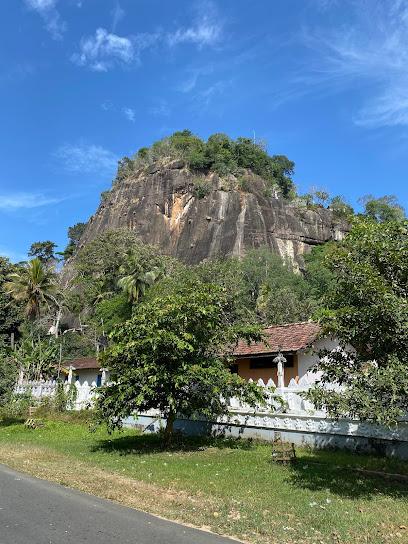
Essential places to dine
The Dutchman's Street
Experience culinary bliss at The Dutchman's Street in Matara—a perfect blend of local flavors and international delights amidst charming surroundings.
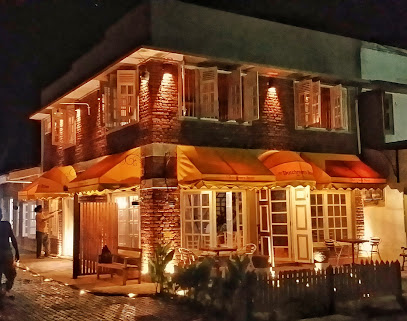
Zephyr Ceylon
Experience exquisite flavors at Zephyr Ceylon in Kamburugamuwa - where local ingredients meet global culinary traditions.
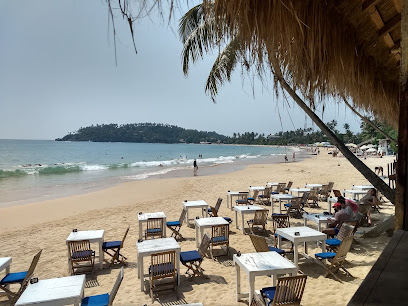
The Doctor's House
Experience delightful dining at The Doctor's House in Matara – where fresh seafood meets vibrant nightlife amidst stunning ocean views.
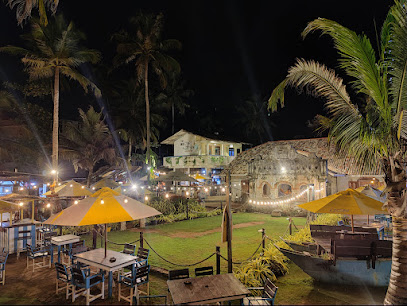
Cafe 4 U
Discover family-friendly dining at Cafe 4 U in Matara, where local flavors meet fast-food favorites in a cozy setting.
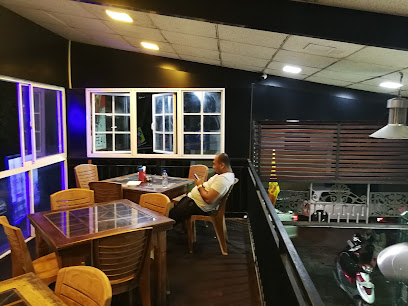
Ambasewana Indian Spice
Experience the authentic flavors of India at Ambasewana Indian Spice in Matara - where every meal is a celebration of spice and culture.
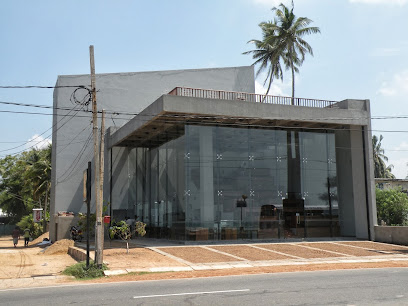
Matara Kema - Take Away & Restaurant
Discover authentic Sri Lankan cuisine at Matara Kema - where every meal tells a story of flavor and tradition.
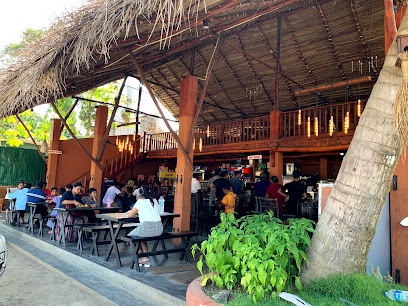
Matara Rest House Hotel
Experience authentic Sri Lankan hospitality at Matara Rest House Hotel with exquisite dining options and comfortable accommodations.

Hangten Rooftop Restaurant
Discover breathtaking ocean views and exquisite cuisine at Hangten Rooftop Restaurant in Weligama – an unforgettable dining experience awaits.
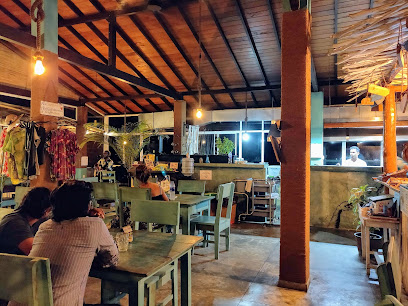
360 Madiha - Restaurants and Hotels
Discover delightful dining at 360 Madiha - where delicious food meets breathtaking ocean views in Matara.
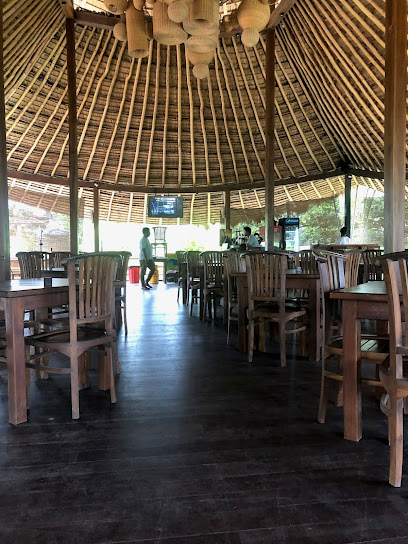
Tomatina
Discover authentic Sri Lankan cuisine at Tomatina in Matara – where every dish is a delightful journey through local flavors.
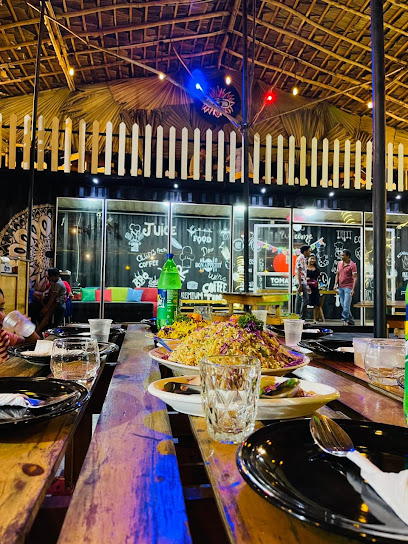
Hela Bojun Hala - Matara | හෙළ බොජුන් හල - මාතර | ஹெல போஜுன் ஹல - மாத்தறை
Experience authentic Sri Lankan cuisine at Hela Bojun Hala - a vibrant eatery in Matara specializing in healthy meals and cultural performances.
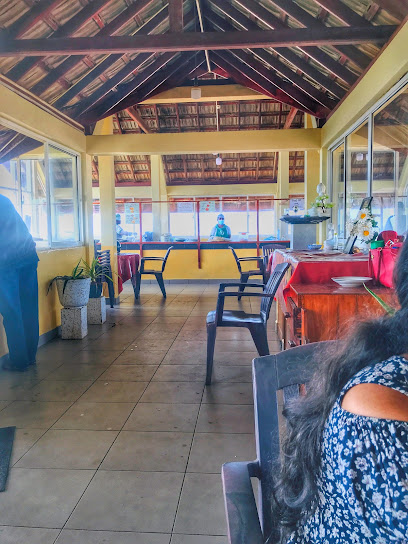
The Kottu Factory
Discover authentic Sri Lankan flavors at The Kottu Factory in Matara – home of delicious Kottu Roti and vibrant dining experiences.
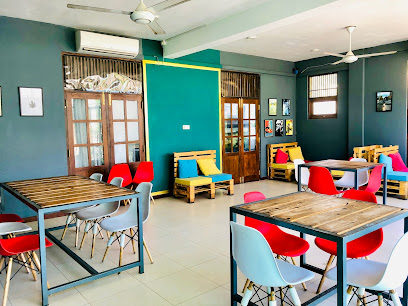
Juice Life - Urban Eatery Matara
Discover healthful delights at Juice Life - Urban Eatery Matara, where fresh ingredients meet vibrant flavors in a chic setting.
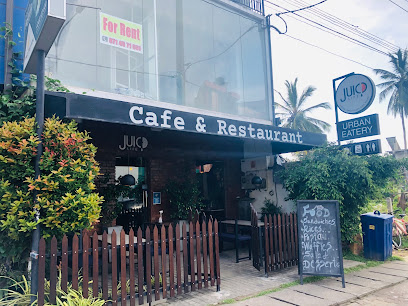
Mayura Beach Restaurant
Experience authentic Sri Lankan flavors with stunning ocean views at Mayura Beach Restaurant in Matara.
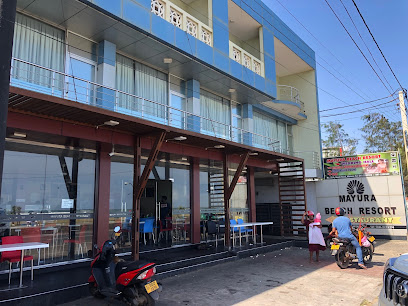
Culture Resort
Discover luxury and culture at Culture Resort in Matara – your gateway to serene beaches and exquisite dining experiences.

Markets, malls and hidden boutiques
Fashion Bug Matara
Discover the latest trends and stylish clothing at Fashion Bug Matara, where affordability meets fashion in the heart of Sri Lanka.
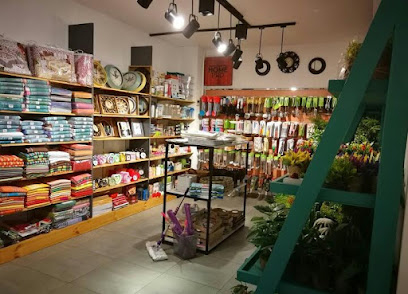
Kotuwe Kade Shopping Centre
Explore a shopping haven in Matara: Kotuwe Kade Shopping Centre offers an array of shops, dining, and cultural experiences for every traveler.
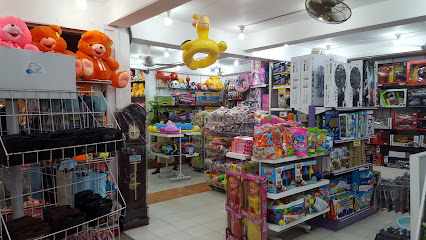
Samanmal - Matara
Explore Samanmal in Matara for unique fashion that blends contemporary style with traditional Sri Lankan flair.
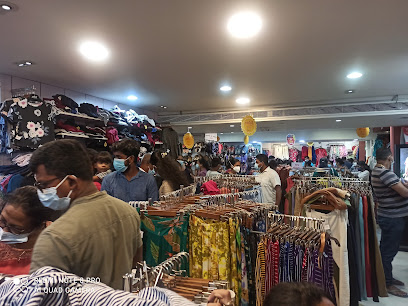
Kotuwa Kade
Explore Kotuwa Kade in Matara for a vibrant shopping experience, where local culture meets modern retail in the heart of Sri Lanka.
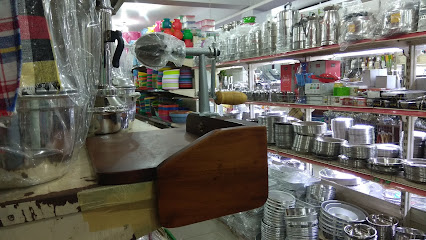
Prasad The Fashion Square - Matara
Explore local fashion at Prasad The Fashion Square in Matara, where diverse clothing styles meet exceptional service in a vibrant shopping atmosphere.
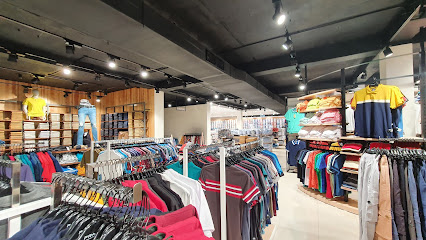
ASB Fashion
Explore ASB Fashion in Matara: Discover unique gifts and stylish clothing that capture the essence of local culture.
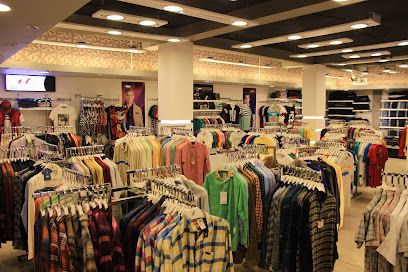
Rivera Urban Clothing
Discover trendy apparel and exceptional service at Rivera Urban Clothing, the ultimate shopping destination in Matara.
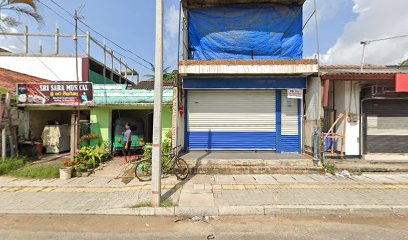
Cheap Side Matara
Discover the vibrant styles at Cheap Side Matara, where fashion meets affordability in the heart of Sri Lanka.
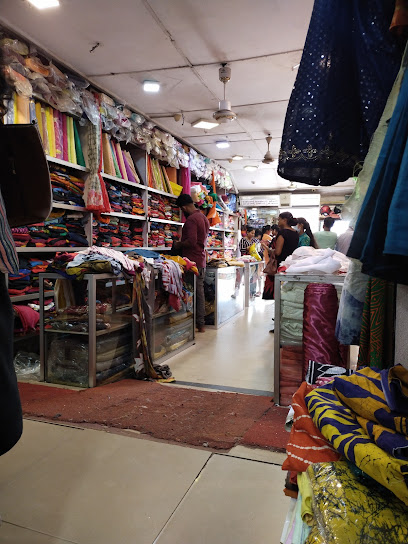
Prabath Fashion
Explore the best of fashion at Prabath Fashion in Matara, where style meets quality for every wardrobe.
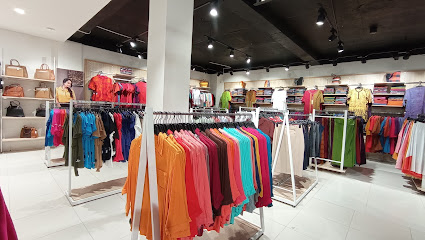
Jez-Look Batiks
Explore the vibrant world of batik at Jez-Look Batiks, where Sri Lankan textile art meets unique shopping experiences.
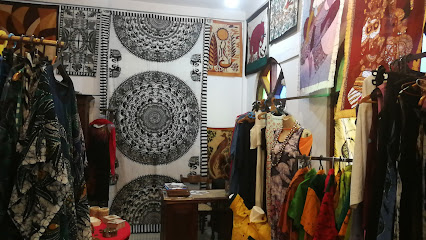
ZERO LIVE STORE
Explore the vibrant fashion scene at ZERO LIVE STORE in Matara, where unique styles and local flair come together for an unforgettable shopping experience.
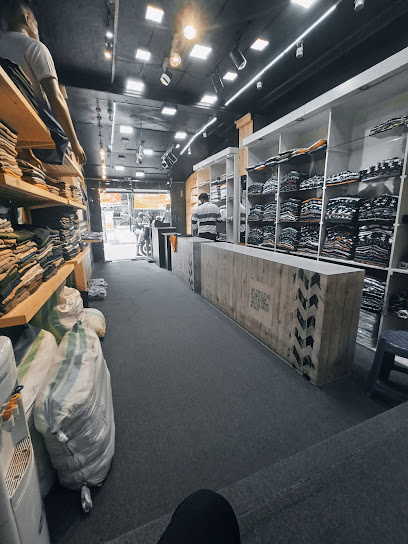
LOVERS BIG CITY (PVT) LTD
Explore Lovers Big City in Matara for an unforgettable shopping experience packed with cosmetics, beauty accessories, and unique gifts.
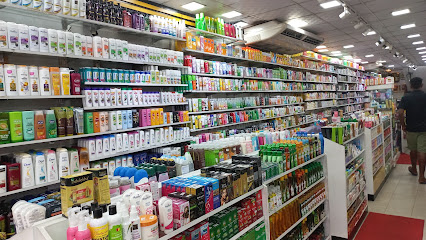
Cotton On
Discover trendy fashion and unique accessories at Cotton On, the premier clothing store in Matara, perfect for every stylish traveler.
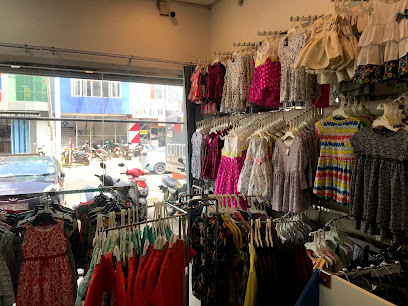
Visse kade new
Explore Visse Kade in Matara for unique Sri Lankan gifts, handcrafted items, and a taste of local culture in every purchase.
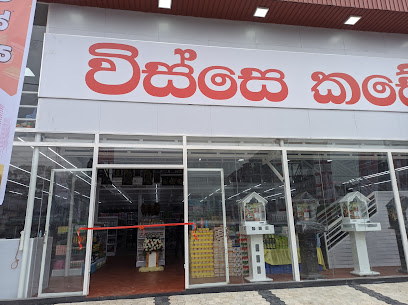
Simayas
Explore Simayas, the premier clothing store in Matara, offering a splendid selection of fashion and local craftsmanship for every style.
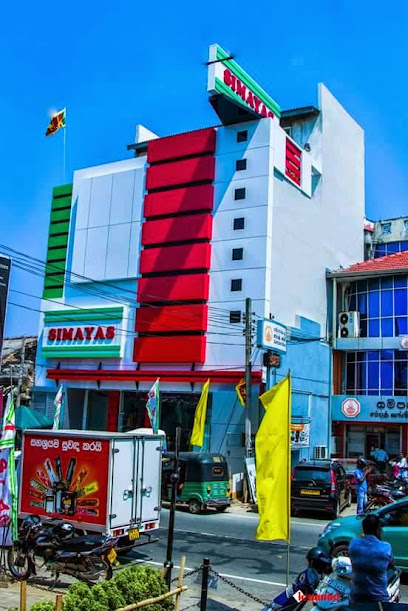
Essential bars & hidden hideouts
The Doctor's House
Discover the perfect blend of food, music, and hospitality at The Doctor's House in Matara, Sri Lanka, an ideal destination for every traveler.
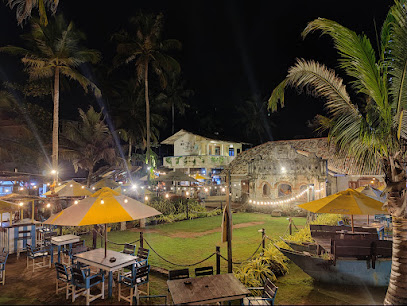
Chamin Restaurant and Open Bar
Discover the vibrant culinary scene at Chamin Restaurant and Open Bar in Matara, where traditional Sri Lankan flavors meet international cuisine.
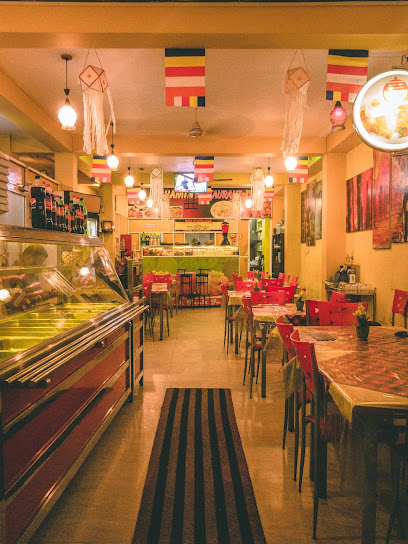
Neel The Wine
Discover the charm of Neel The Wine in Matara, where exquisite wines and a cozy atmosphere await you.
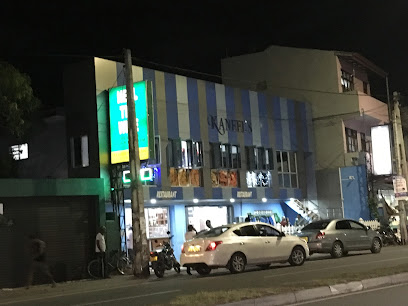
Blue Moon Sports Club Restaurant & BAR
Discover the lively ambiance and delicious cuisine at Blue Moon Sports Club Restaurant & BAR in Matara, your ultimate destination for sports and dining.
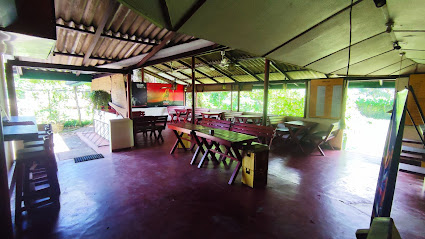
Social Beach Bar Sk Town
Discover the vibrant atmosphere of Social Beach Bar Sk Town, where refreshing cocktails meet stunning ocean views in the heart of Matara.
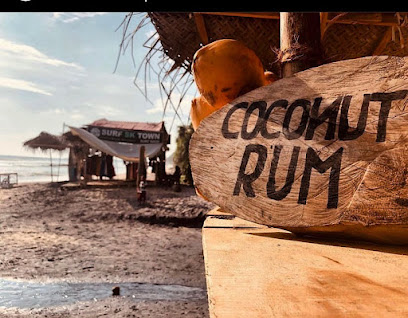
fresh juice bar
Experience the vibrant flavors of fresh local fruits at Matara's top juice bar, where health meets refreshment in every sip.
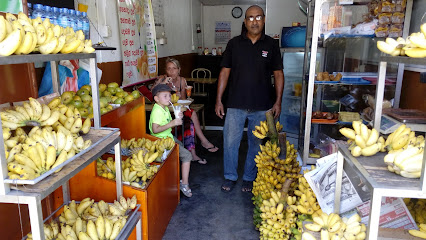
Njay's Tiki Bar
Discover Njay's Tiki Bar in Matara - a tropical oasis offering refreshing cocktails, light snacks, and a vibrant atmosphere perfect for relaxation.
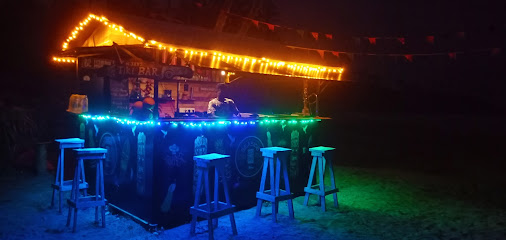
Nilwala Sports Club
Discover the vibrant atmosphere at Nilwala Sports Club, Matara's premier spot for sports, drinks, and local camaraderie.
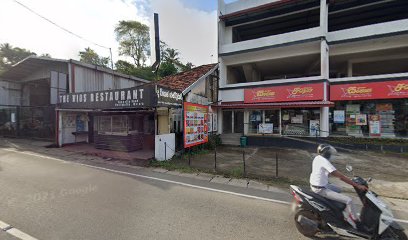
Southern beverages (pvt)ltd
Experience the essence of Sri Lankan spirits at Southern Beverages, Matara's premier bar for local liquors and wines.
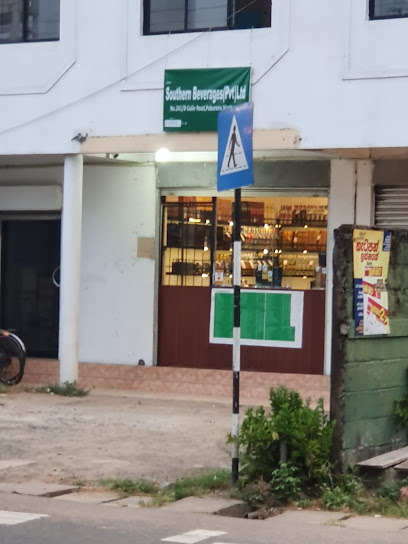
lakserpapdan
Experience the vibrant nightlife and local flavors at Lakserpapdan, a must-visit bar in Matara, Sri Lanka.
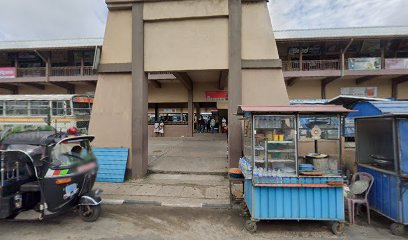
City Wine Liquor Shop
Discover a diverse selection of wines at City Wine Liquor Shop in Matara, where every bottle tells a story and every sip is a journey.
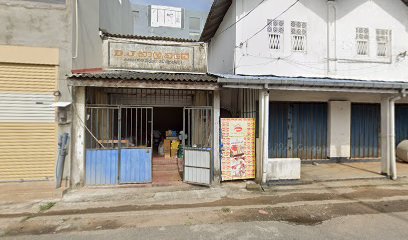
Cat
Experience the perfect blend of local flavors and refreshing drinks at Cat Bar in Matara, Sri Lanka's vibrant nightlife hub.
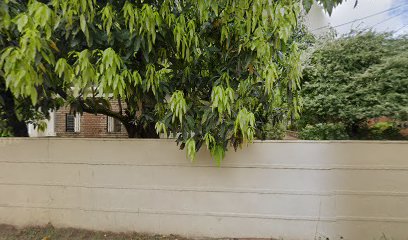
Highland MILK BAR
Discover Highland MILK BAR in Matara - a vibrant spot to enjoy refreshing drinks and experience genuine Sri Lankan hospitality.
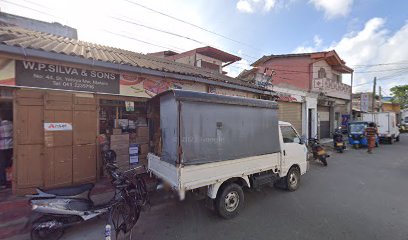
SK Bar
Discover the vibrant nightlife at SK Bar in Matara, where refreshing drinks and a lively atmosphere await your arrival.
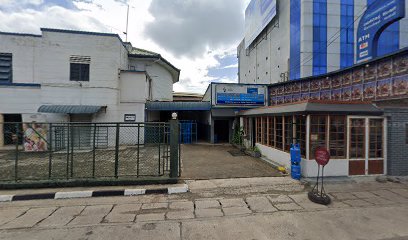
Local Phrases
-
- Helloආයුබෝවන්
[Ayubowan] - Goodbyeසල්ලි
[Salli] - Yesඔව්
[Owe] - Noනෑ
[Nae] - Please/You're welcomeකරන්න
[Karanna] - Thank youඔබව ස්තුතිමි
[Oba stuthimi] - Excuse me/Sorryසමාවෙන්න
[Samanvenna] - How are you?ඔයාට කෙසේද?
[Oyata kese da?] - Fine. And you?හරි. ඔයා?
[Hari. Oya?] - Do you speak English?ඔයාගේ ඉංග්රීසි කතා කරනවාද?
[Oyage ingreesi katha karanavada?] - I don't understandමට දැනුම් නැත
[Mata danum natha]
- Helloආයුබෝවන්
-
- I'd like to see the menu, pleaseකරුණාකර මෙනුව දැක්කා ලබා ගන්න
[Karunakara menoo dakka laba ganna] - I don't eat meatමම මස් කන්නේ නැත
[Mama mas kanna ne] - Cheers!සුරංගනා!
[Surangana!] - I would like to pay, pleaseකරුණාකර ගෙවන්න
[Karunakara gewanna]
- I'd like to see the menu, pleaseකරුණාකර මෙනුව දැක්කා ලබා ගන්න
-
- Help!උක්කරු!
[Ukkaru!] - Go away!ඉවුරු!
[Iwuru!] - Call the Police!පොලිස් කරන්න
[Polis karanna] - Call a doctor!වෛරස් කරන්න
[Vayras karanna] - I'm lostමම අවකාශයා
[Mama avakshaya] - I'm illමම අසා දැනුම් ඇත
[Mama asa danum athe]
- Help!උක්කරු!
-
- I'd like to buy...මම ... වෙත මිලදී ගත්තේ
[Mama ... wethi miladi gaththe] - I'm just lookingමම දන්නාටත් බලන්නේ නැත
[Mama dannata bathalanne ne] - How much is it?එය කොහොමද?
[Eya kohomada?] - That's too expensiveඑය වේගයාට වැඩිය
[Eya vegayata wadiya] - Can you lower the price?මිලදී ගැනීම හොඳයිද?
[Miladi genim hodayi?]
- I'd like to buy...මම ... වෙත මිලදී ගත්තේ
-
- What time is it?දිනයේ කාලය කුමක්ද?
[Dinayek kalaya kumakda?] - It's one o'clockඑකට
[Ekata] - Half past (10)දහයි
[Dahayi] - Morningඋදේ
[Ude] - Afternoonපෙ.න.
[Pena] - Eveningසවස
[Sawasa] - Yesterdayඊයේ
[Iye] - Todayඅද
[Ada] - Tomorrowහෙට
[Heta] - 1එක
[Eka] - 2දෙක
[Deka] - 3තුන
[Thuna] - 4හතලිය
[Hathaliya] - 5පහ
[Paha] - 6හය
[Haya] - 7හත
[Hatha] - 8අට
[Ata] - 9නං
[Nama] - 10දහය
[Dahaya]
- What time is it?දිනයේ කාලය කුමක්ද?
-
- Where's a/the...?... කොටසෙන් කොටසක් පෙන්වනවාද?
[... kotasen kotask penwanavada?] - What's the address?ලිපිනය කුමක්ද?
[Lipinaya kumakda?] - Can you show me (on the map)?මට පෙන්වීමට හැකිද?
[Mata penwimata hakida?] - When's the next (bus)?ඊළඟ (බස්) කොටස කුමක්ද?
[Ilanga (bas) kotasa kumakda?] - A ticket (to ....)ප්රාථමිකයා (... වෙත)
[Prathamigaya (... wetha)]
- Where's a/the...?... කොටසෙන් කොටසක් පෙන්වනවාද?
History of Matara
-
Matara's history stretches back to ancient times, evidenced by archaeological findings that suggest human settlements in the area dating over 2,000 years. The region was an integral part of the Ruhuna Kingdom, one of the early kingdoms in Sri Lanka. The name 'Matara' is believed to have been derived from the Sinhalese word 'Mahatara,' meaning 'Great Ferry,' indicating its importance as a ferry point in ancient trade and travel.
-
The arrival of the Portuguese in the early 16th century marked a significant turning point in Matara's history. They built the first fortress in 1595 to secure their control over the coastal trade routes. This initial fortification laid the groundwork for the city’s later developments. The fort was strategically positioned to oversee the ocean and protect the Portuguese interests from local resistance and rival European powers.
-
The Dutch East India Company seized control of Matara from the Portuguese in 1640. The Dutch constructed a more formidable fortification, known as the Matara Fort, in the late 17th century. This fortification remains one of the key historical landmarks in the city. The Dutch influence extended beyond military architecture, also contributing to the development of local infrastructure and the introduction of European architectural styles.
-
In 1796, the British took over Matara along with the rest of the coastal regions of Sri Lanka. The British period saw the modernization of Matara, with the establishment of schools, hospitals, and improved roadways. The British influence is also evident in some of the colonial buildings that still stand today, showcasing a blend of local and European architectural elements.
-
After Sri Lanka gained independence from British rule in 1948, Matara evolved into a vibrant provincial city. It became a hub for education and commerce in the Southern Province. The city has continued to develop, balancing its rich historical heritage with modern advancements. Key landmarks from various eras have been preserved and are integral to its cultural identity.
-
Matara is home to several significant religious and cultural sites. The Weherahena Temple, with its massive Buddha statue and intricate tunnel paintings, attracts visitors from all over the world. Additionally, the Matara Bodhiya, a sacred fig tree, is an important pilgrimage site for Buddhists. These sites highlight the city’s enduring spiritual and cultural traditions.
-
Matara was one of the cities severely affected by the 2004 Indian Ocean tsunami. The disaster resulted in significant loss of life and property. However, the resilience of the Matara community shone through in the aftermath, with rapid reconstruction and rehabilitation efforts. The city has since rebuilt itself, with improved infrastructure and disaster preparedness measures.
Matara Essentials
-
Matara is accessible by various means of transport. The nearest international airport is Bandaranaike International Airport in Colombo, approximately 160 kilometers away. From Colombo, you can take an express bus, train, or hire a private taxi to Matara. The Southern Expressway (E01) provides a direct route, making the journey by car or taxi around 2-3 hours. Trains from Colombo Fort station to Matara offer a scenic coastal route and are a popular choice among travelers.
-
Matara offers a range of transportation options. Tuk-tuks are a convenient and inexpensive way to get around the city. Local buses connect Matara with nearby towns and villages. For longer distances, trains and intercity buses are available. Renting a car or motorbike is also an option, allowing you to explore the region at your own pace. Be aware that driving in Sri Lanka requires an International Driving Permit (IDP).
-
The official currency in Sri Lanka is the Sri Lankan Rupee (LKR). Credit and debit cards are widely accepted in hotels, restaurants, and larger shops in Matara. However, it is advisable to carry some cash, especially when visiting smaller establishments or local markets. ATMs are readily available in the city for cash withdrawals.
-
Matara is generally considered a safe destination for tourists. However, it is advisable to take standard precautions. Avoid walking alone at night in unfamiliar areas and be cautious with your belongings in crowded places. While crime rates are relatively low, there have been occasional reports of pickpocketing and scams targeting tourists. Stay vigilant, especially in busy areas like bus and train stations.
-
In case of emergency, dial 119 for police assistance and 110 for medical emergencies. The Matara General Hospital is the main medical facility in the area. It is recommended to have travel insurance that covers medical emergencies. For minor health issues, pharmacies are available throughout the city where you can purchase over-the-counter medications.
-
Fashion: Do dress modestly, especially when visiting religious sites. Avoid wearing revealing clothing. Religion: Do respect local customs and traditions. Always remove your shoes and cover your head when entering temples. Public Transport: Do be respectful and give up your seat to elderly passengers. Don't eat or drink on public transport. Greetings: Do greet people with a smile and a slight bow. A handshake is common in business settings. Eating & Drinking: Do try local delicacies and accept food offerings graciously. Don't refuse hospitality, as it is considered impolite.
-
To experience Matara like a local, visit the local markets where you can buy fresh produce and traditional Sri Lankan goods. Engage with locals, who are often friendly and willing to share stories about the city's history and culture. Don't miss visiting the Matara Fort and the iconic Dondra Head Lighthouse. For a unique experience, take a stroll along the Polhena Beach, popular for its calm waters and marine life.
Trending Landmark in Matara
-
The Dutchman's Street
-
Matara Bodhiya - මාතර බෝධිය (மாதாரா போ மரம்)
-
The Shrine of Our Lady of Matara
-
පරෙවි දූව විහාරස්ථානය - Parewi Duwa Temple
-
Sanaya Mansion
-
Star Fort Matara
-
Kotuwe Kade Shopping Centre
-
Matara Beach Park
-
Madiha Beach
-
Matara Beach
-
Matara Fort
-
Hotel Nawathana
-
Matara Paravi Duwa Beach
-
මාතර තානායම
-
Nilwala Crocodile Safari Matara
Nearby Cities to Matara
-
Things To Do in Mirissa
-
Things To Do in Unawatuna
-
Things To Do in Galle
-
Things To Do in Hikkaduwa
-
Things To Do in Bentota
-
Things To Do in Nuwara Eliya
-
Things To Do in Ella
-
Things To Do in Colombo
-
Things To Do in Kandy
-
Things To Do in Negombo
-
Things To Do in Sigiriya
-
Things To Do in Polonnaruwa
-
Things To Do in Anuradhapura
-
Things To Do in Trincomalee
-
Things To Do in Kanyakumari








